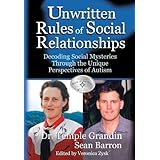
Social Communication & Interaction: Relationships
Education Health & Care Plans, Case Law and your child's right to Speech & Language Therapy (SALT)
The Importance of Speech & Language Therapy (SALT)
Case law related to Speech & Language Therapy
Speech & Language Therapy (SALT) is important at all levels and ages for children with autism, even those who are verbal, as they need to learn to socially interact appropriately with their peers to build relationships; understand the meaning behind complex language and be able to communicate their feelings, needs and thoughts successfully to enable them to reduce anxiety and frustration and avoid more challenging behaviours developing and becoming very difficult to manage later in life when you will be dealing with a frustrated, distressed and very challenging teenager or adult.
Children, teenagers and adults with autism struggle to understand inuendo, scarcasm, idioms and when they are been teased or 'set up' by peers because they do not learn these skills naturally like typically developing children. But they can learn these skills! And because they can, it is important for a speech and language therapist to be involved as soon as it is noticed that a child is not developing language and/or understanding the social and non-verbal cues of others at the same developmental stages as their peers. Children of school age appearing to be delayed in developing these skills must have a Speech and Language Therapist assess the level of their social communication development and where any needs are identified, a plan for therapy must be made and actioned.
During a diagnostic assessment for autism, a speech and language therapist should be part of the multiagency team.
Most Local Education Authorities (LEAs) put speech and language therapy provision under part 6 in the 'OLD' Special Educational Needs (SEN) statement (which is for non-eduational provision) or under the 'Health' section of the NEW Education, Health & Care Plans (EHCP) and it will often be considered as a health related provision BUT it is stated by Case Law that learning to communicate is as important an educational need as learning to read and write and should be put as a requirement in part 3 of the SEN statement (which is for educational provision) and/or included under the Educational Part of the EHCP.
The case law is called The Lancashire Judgement and you can use this to argue your case for your child's right to have adequate and relevent speech and language therapy to include learning to socially communicate, interact and build relationships in school.
The SEN and Disability (SEND) Green paper has changed the way assessment and provision is carried out and delivered by bringing professionals from Education, Health and Social Care together to work in partnership and complete multi-agency assessments of need and create a Health, Education and Care Plan for each and every child with any SEN or Disability and this is from birth to age 25;
'Afasic is the UK charity representing children and young people with speech, language and communication impairments, working for their inclusion in society and supporting their parents and carers.' Here is a link to their response on the SEN and Disability Green Paper which has now become part of the Children & Families Act 2014.
'The case on IPSEA's website linked above under the Lancashire Judgekment was about statements of SEN and will remain relevant for the many children with SEN who will still have statements during the transition period. Under the new law, the position as it was under case law (from this case and from the Bromley case which you will also find in this case law section) has now been included in the statutory definitions of the different types of provision which can be in an EHC plan. Section 21 (5) of the Children and Families Act 2014 now specifically provides:
Health care provision or social care provision which educates or trains a child or young person is to be treated as Special Educational Provision (instead of health care provision or social care provision).
The Autism Act 2009 relates to assessment of need for adults with an Autism Spectrum diagnosis and is the law you can use to advocate for the relevant and appropriate services to provide the required intervention, therapy, support and anything else you have been assessed to need to live as ordinary a life as anyone else. This means you can ask to be assessed for your needs and services to fulfill your potential, such as Social Communication and Interaction skills /Relationship & Life Coaching & other therapies, up to the age of 25.
 TEMPLE GRANDIN'S TEN UNWRITTEN RULES OF SOCIAL RELATIONSHIPS:
TEMPLE GRANDIN'S TEN UNWRITTEN RULES OF SOCIAL RELATIONSHIPS:
Rule #1: Rules are Not Absolute. They are Situation-based and People-based.
Rule #2: Not Everything is Equally Important in the Grand Scheme of Things.
Rule #3: Everyone in the World Makes Mistakes. It doesn't Have to Ruin Your Day.
Rule #4: Honesty is Different than Diplomacy.
Rule #5: Being Polite is Appropriate in Any Situation.
Rule #6: Not Everyone Who is Nice to Me is My Friend.
Rule #7: People Act Differently in Public than They Do in Private.
Rule #8: Know When You're Turning People Off.
Rule #9: "FittingIn" is Often Tied to Looking and Sounding Like YOu Fit In.
Rule #10: People are Responsible for Their Own Behaviours.












